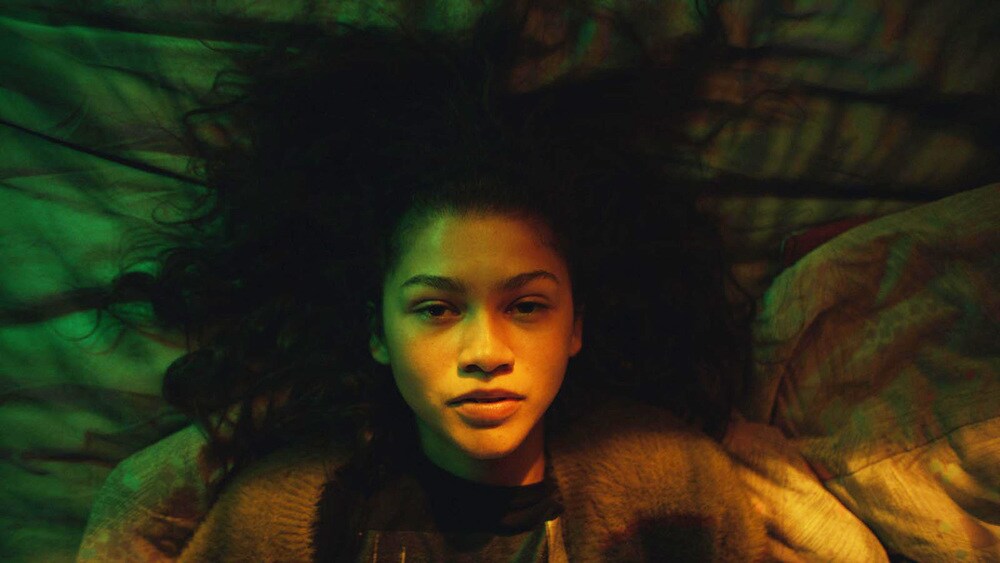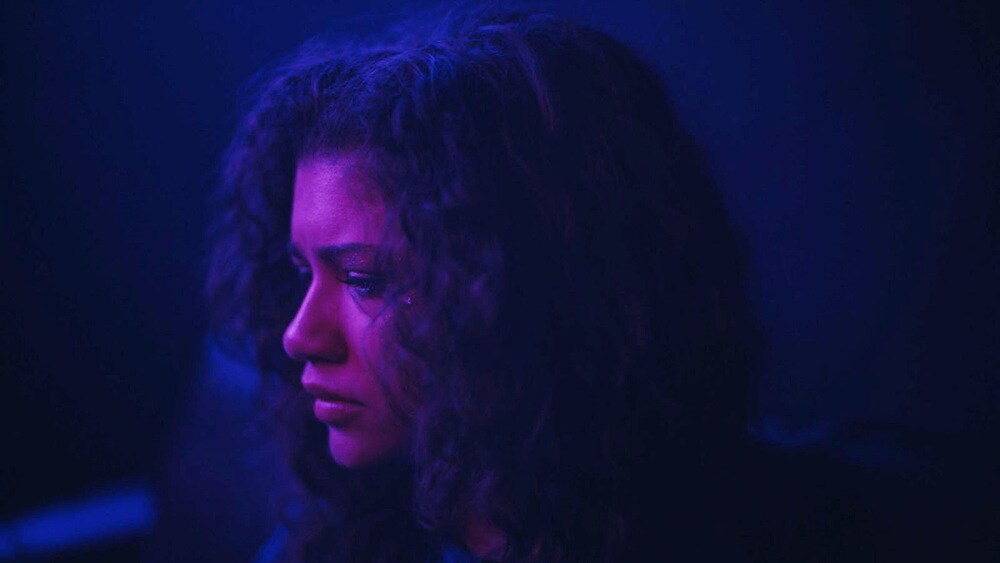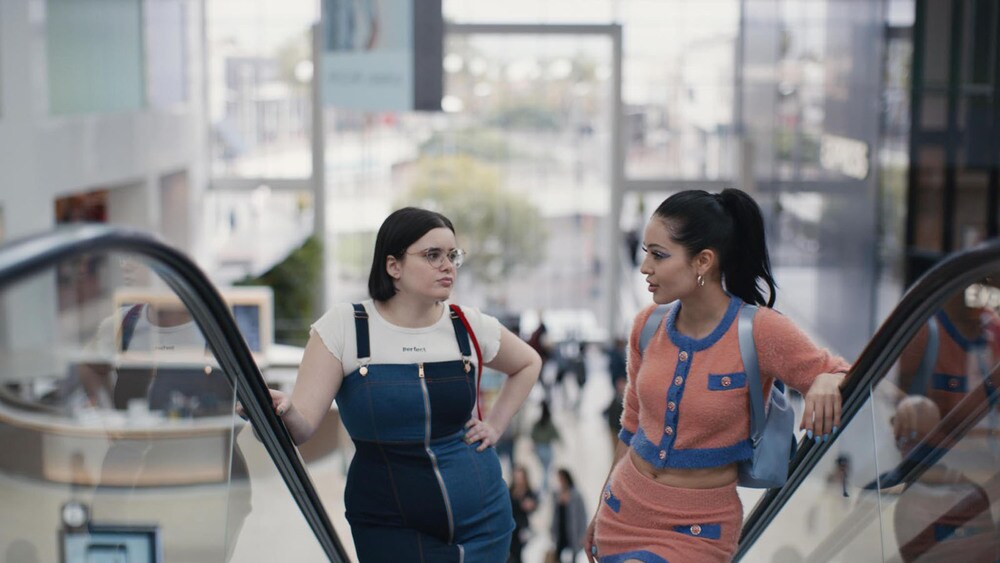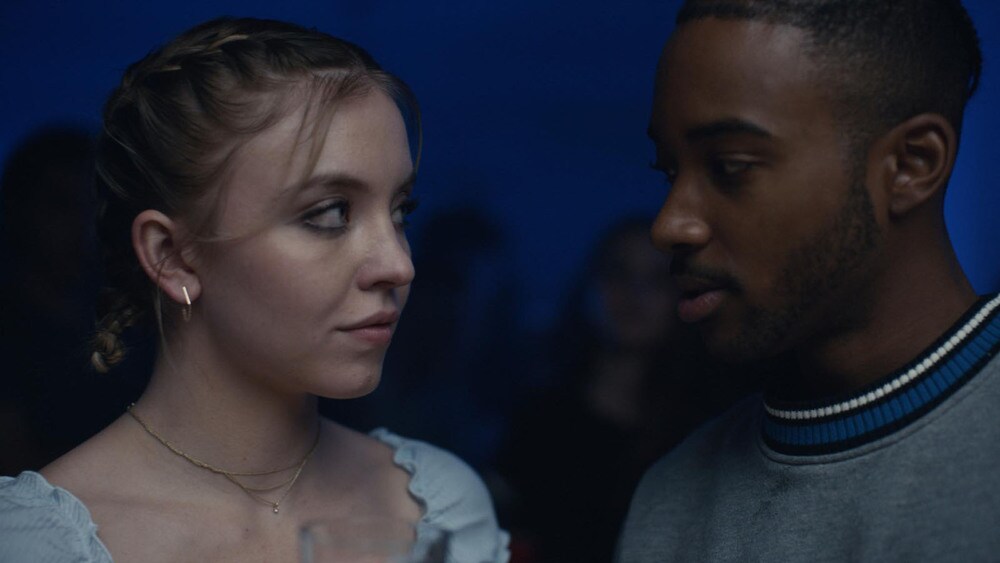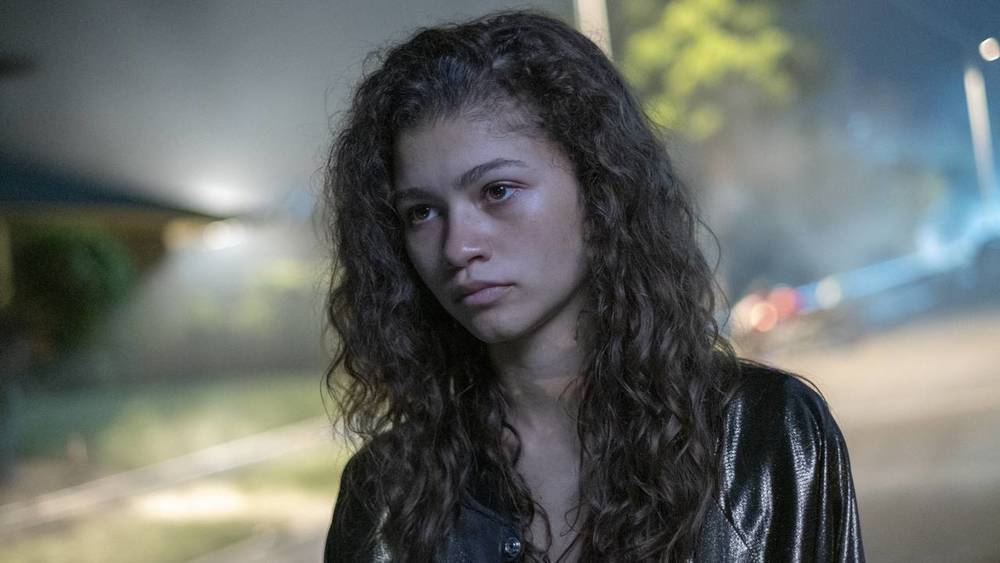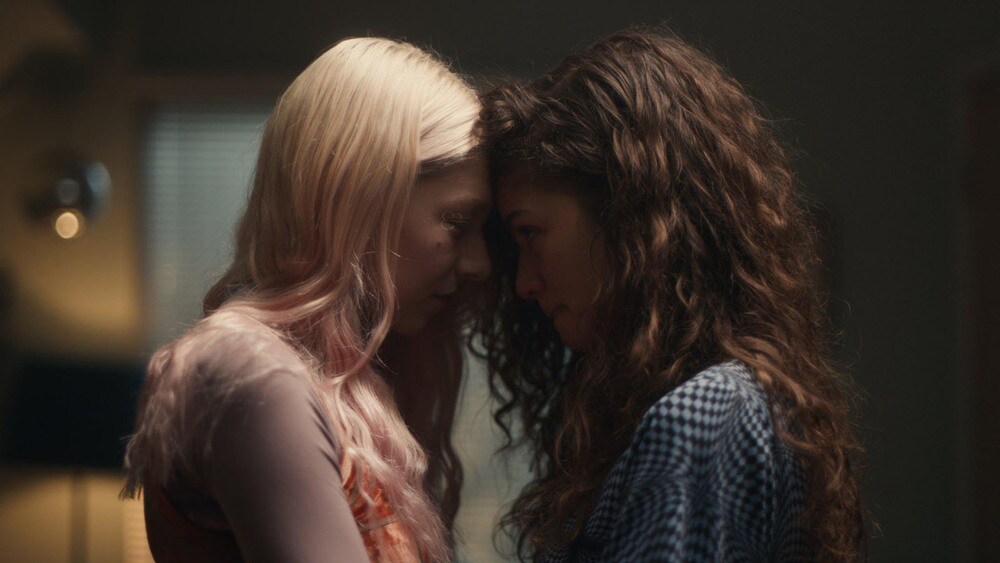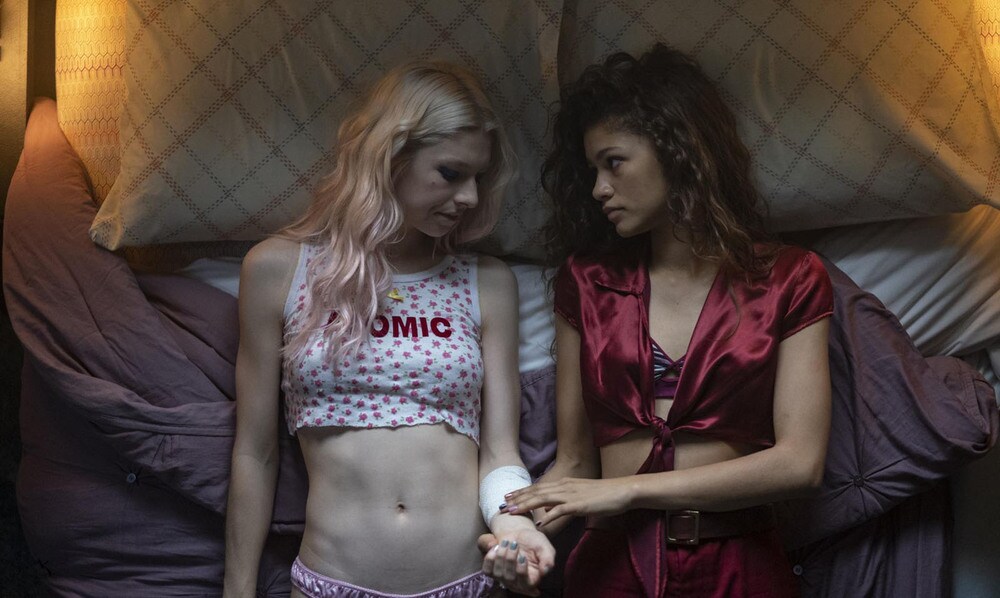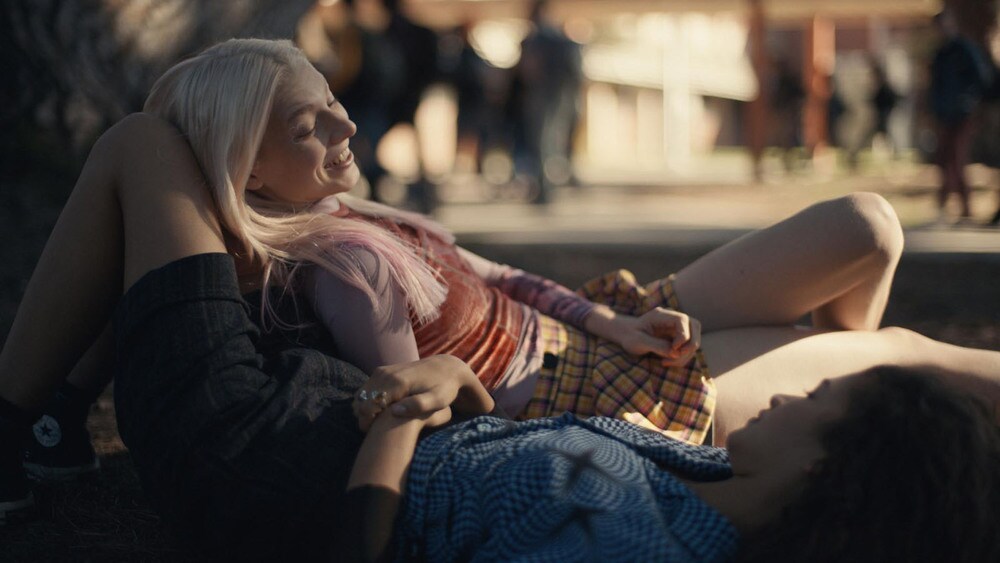Five theses about euphoria
First thesis: we are all fucked up.
Reality curls up on a ragged sofa, the crystals settle together, happiness is a faint whisper, existence is not on the list of priorities. Not that it’s not important, just… it’s simply not there. We all are fucked up, but still doing fine given the circumstances, even though we keep over- and underdosing on the tired fractals of the universe. We swim in blue light on the bowling alley, the unbearable lightness of being high, on anything, on everything.
This is not a series. Yes it is. Ceci n’est pas un crack pipe, that’s the kind of thing they keep saying on the screen with their eyes, embedded into the majestic (a)symmetry of their faces, whenever and however. A hyperrealist painting pouring over the frames, no, scratch that, let’s delete realism from the statement, we don’t have a right to it, so that leaves us with only hyper, of course what does that mean in itself, if anything, but let’s say hypersurrealism, and that gets us a bit closer right away. Closer to what? Nothing.
Second thesis: we are all tired fractals.
For a while I couldn’t capture what makes the background music so special. There is something, an activity, a happening, that would fit perfectly to it, I could feel that, the thought was flowing in my veins, but it was only around the end of the second episode that I realized: this is exactly the kind of music to which it would be beautiful to die. Not for any reason or determination or by chance at the same time. It’s just that it would be beautiful to die to this music without a reason.
The blasé voice of narration by Rue sees all this from a point of view that can not be fully identical to her character in the series. Still, we don’t exactly feel like the voice is coming from later in time, thus being able to tell us things that the girl cannot know – more like she could be standing above the events in space, or rather dimension, sometimes seemingly dryly selecting facts, based on what we’re ought to know, but not telling us why are we ought to know them. As if the story-teller, serving as the background to the suggestive visual world, would be her perfectly created, indifferent version, tracable to the fractals.
Third thesis: we all flow in each other’s veins.
Thus, Euphoria is a hypersurrelist painting, a musial composition in the background of dying, a prolonged gaze, a piece of paper resting on a stretched out tounge as the motion picture stiffens. The disturbing images keep flowing all over in us, everything is beautiful and filthy, pure and hideous at the same time, stretching our eyeballs apart from the inside. Nothing can be as done as this world. They are all continously and definitively done, everything and everyone, whenever and however. We break into it, we gush in it, we float along with it.
Euphoria does not give space to the usual statements. What is a set? What is acting? Directing? We’re not going to be sure that all this ends end starts somewhere in relation to us. But this is not why it’s so brave, not why it punches us in the face. It’s strong because it has the effect which it talks about. It does not simply talk about something, not only tells us about drugs: it becomes a drug. Everything, all of us, the set, the acting, the directing, the screen, our eyeballs, our skins, our skeletons come together into a single, prolonged, psychedelic trip, everything starts and ends somewhere at the same time. Are we scared? Who’s scared? We don’t exist anymore.
Fourth thesis: we are all beatiful and filthy.
„Euphoria is a heightened state of mind generated in a psychological or pharmacological way, which can usually not be experienced naturally, without external impact.” Can we have a dependant relationship with something that we have power over? Something that we have full control over, something we induce, and are all along fully aware of what’s going to happen to us? No. We can not be addicted to anything predictable. We get more and more familiar with it, like when you are around four years old and realize that with sheer willpower and your unnamed solipsism, within a few minutes you are able to terminate the inconceivable world around the unknown world, then the unkown world around the known world, then the known world around the experienced, then the experienced world around yourself, and finally, always only for a few seconds, or maybe just a fraction of a second, an infinite fraction of a second, in the center of the ceasing inconceivable, unkown, known and experienced world: yourself. You return to this state, maybe, on a certain level, you feel like you’re in charge of it, but deep down, in the ceased core, even you know that the reason for returning to this perishing, provoking even this imagined and unnamed solipsism is exactly that these few seconds you can not control in any way. You have no power over it. Because with the arrival of euphoria, power ceases to exist even as a concept, along with ourselves.
Most of the episodes start with a personal story, echoing Tim Burton, Wes Anderson and/or Tarantino, wrapped into some kind of purple cloud. Always someone else’s story. We are wrestling with the beauty and filth interweaving their lifes, mostly instead of them, because that’s what their bored, plastic facial expressions throughout the story evokes in us: to deal with all of it instead of them. We’re moving away from ourselves in slow motion, and when we try to grasp something anyway, everything speeds up for a moment. If we don’t really try, if we don’t grasp anything, then everything’s going to be all right. Then we are going to be grasped. How nice. By our throats.
Fifth thesis: we all are.
Still, there is obvious evidence of our existence. Finely ground white powder on top of the laptop. Delicate, cathartic scratches on an icerink. Floating splinters around another human being. From the moment we are born, we gather fractures. The world and everything around us would benefit the most if we would just pass each other withouth a touch. To connect is not natural, the perfect state should be untouchable and untouched wholeness. We were all created. Other people have power over us being here in the moment of the decision and/or happening, over whom other people had the same power in their own time. We are already born out of contact, our departure is almost unbearingly painful, however it happens. We live our lives as asteroids, plummeting around all over. We keep hurting each other constantly, we keep hurting constantly. This unpredictable, filthy and beautiful tendency is the proof of us being present. Let the starting point be solipsims or something completely different, the scars we leave on each other are what mark our paths. And still, that’s exactly why we do it all.
Zendaya is amazing, brilliant, overwhelming, manic. Hunter Schafer is fantastic, fragile, marvelous, breathtaking. All of the characters are tired fractals tingling under, above and inside the surface of a masterpiece, the cinematography at times resembling Fight Club, the dramaturgy living in incomprehensible twists and prolonged insanity at the same time. Euphoria is a filthy and beautiful symphony. We want to move into it – no, we don’t want that, we’d be perished. But the thing about Euphoria is, what we can barely even admit to ourselves, about our addictions, about our lifes, that what all of us actually really want, maniacally, desperately, obsessively: is to be perished by it.
Ha tetszik, amit csinálunk, kérünk, szállj be a finanszírozásunkba, akár csak havi pár euróval!

